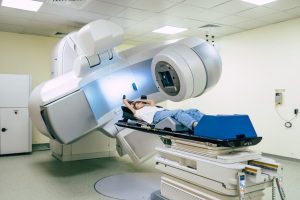
External vs. Internal Radiation for Breast Cancer
If you’ve been diagnosed with breast cancer, you may have heard radiation therapy discussed as part of your treatment plan. This approach is commonly used
HIPAA Alert: Potential Data Breach Learn More
Questions on Oncology, Hematology and/or Infusion Clinical Services due to COVID-19 Crisis – CALL 833-698-1623
Important Information for Our Patients Regarding the Coronavirus.
RCCA Providing Area Cancer Patients with Access to Care During Coronavirus Outbreak
RCCA Offering Patients Virtual Visits During Coronavirus Pandemic
If you have ever received a medication injection, IV fluids, or been fitted with an insulin pump, you have benefited from infusion therapy. This treatment approach works by delivering medication directly into the body, providing fast, effective, and controllable results. This makes it the preferred method for treating a wide variety of conditions, from autoimmune diseases to cancer.
Regional Cancer Care Associates physicians offer patients innovative therapies, including immunotherapies and targeted therapy, as well as access to approximately 300 clinical trials. In addition to serving patients who have solid tumors, blood-based cancers, and benign blood disorders, RCCA care centers also provide infusion services to people with a number of non-oncologic conditions — including multiple sclerosis, Crohn’s disease, asthma, iron-deficiency anemia, and rheumatoid arthritis — who take intravenously-administered medications, all in locations close to home.
Here, we discuss what diseases are treated with infusion therapy and what patients can expect from their appointments.

Infusion therapy is a method for administering medication. Instead of being taken as an oral liquid or pill, the medication is infused directly into the patient’s body using a needle or catheter. Medication may be delivered to different locations, depending on the situation:
There are also multiple methods of infusion therapy. Medication may be administered with a shot or injection. This provides a one-time, fast-acting burst of medication. It can also be catheterized with an IV line, ensuring the patient receives a constant supply of the nutrients or medications they need while in the hospital. An insulin pump is another form of infusion therapy. This device delivers a steady flow of insulin just under the patient’s skin to keep hormone levels balanced.
Infusion therapy offers several advantages over an oral pill. These benefits make it a superior option in many different healthcare situations. These are just a few reasons physicians may recommend it:
While medications can be absorbed through the digestive system, this process is not perfectly efficient and some of the medication will be wasted. With infusion therapy, however, all the medication is delivered directly into the bloodstream where the body can make best use of it.
Not all medications can be taken orally. Some drugs will be damaged or altered by the digestive system, reducing their efficacy. Infusion therapy bypasses the digestive system entirely, ensuring that the medication remains effective as it enters the body.
Infusion therapy provides greater dosage control than oral drugs. Varying levels of oral medicine may be absorbed depending on the patient’s diet that day. With infusion therapy, however, physicians can directly monitor and influence how much medication the body receives.
Infusion therapy also allows for slow dosages. IV lines and pumps deliver medication in a slow drip, ensuring the body receives a consistent supply. This is great for situations where the patient needs to maintain steady, non-fluctuating levels of a nutrient, hormone, or drug.
Some patients, especially elderly individuals, struggle to take oral medication. They may have memory issues or lack the facial muscle control to swallow a small pill. Infusion therapy ensures that these patients receive the medication they need.
Infusion therapy can be used to deliver a wide variety of life-saving substances, including nutrients, water, antibiotics, antivirals, blood clotting medications, corticosteroids, biologics, hormone replacements, and much more. This makes it effective for treating just about any illness. The most common applications for infusion therapy include:
When used for these conditions, infusion therapy is fast-working and effective. It delivers positive results when other treatments fail.
Cancer is a disease caused by disordered cell growth. A DNA mutation alters the instructions that dictate cell reproduction, telling cells to divide much more quickly than normal. This creates a mass of abnormal cells that continues to grow and crowd out normal cells. Early-stage cancer is typically localized to the organ where it first developed. If left untreated, however, the cell mutation spreads throughout the body. This makes it difficult to treat using methods such as surgery or radiation therapy.
Infusion therapy is an effective alternative, as it works systemically. Infusions deliver medication into the bloodstream, where it is carried throughout the whole body. The medication can kill cancer cells wherever they are found. Infusion therapy is the preferred cancer treatment for middle- and late-stage cancers. RCCA employs multiple types:
Chemotherapy is one of the most common treatments for cancer. This term refers to a set of powerful drugs that attack and kill cells that divide quickly, including cancer cells. Chemotherapy is often administered alongside other treatments, such as surgery or immunotherapy.
Immunotherapy is a cutting-edge new approach to cancer treatment. Physicians remove some immune cells and modify them with instructions to attack cancer. The modified cells are then returned to the body. This strategy empowers the patient’s immune system to fight cancer.
Certain cancers, especially breast and prostate cancer, use hormones to fuel their growth. Hormone therapy works by blocking these hormones or by interfering with how they behave. This denies the cancer what it needs to keep growing, effectively controlling the cancer’s growth.
Like chemotherapy, targeted therapy uses specialized drugs. These, however, work by pinpointing unique characteristics found only in cancer cells. This allows targeted therapy to bypass healthy cells, reducing the side effects experienced by the patient.
RCCA patients can receive infusion services at home, in a hospital, or in a community-based clinic. The community clinics provide a welcoming environment that helps patients feel at ease. They are staffed by doctors, nurses, and healthcare professionals who are experienced with administering infusion therapy.
Most conditions are treated in multiple appointments over the course of weeks or months. A single appointment may take a few minutes to a few hours, depending on the condition being treated. Patients are free to entertain themselves during longer appointments. Many enjoy reading, listening to music, or simply resting through their treatment. Afterward, they can return home. It is common to feel sore or tired afterward. This is normal and will go away after a night’s rest.
Infusion therapy is a reliable approach to treating a wide variety of health conditions. The staff at Regional Cancer Care Associates is well-trained and experienced in administering infusion therapies of all kinds.
RCCA is a group of more than 100 medical oncologists and hematologists who provide care to more than 30,000 new patients and 265,000 established patients each year at 25 locations throughout New Jersey, Connecticut, Massachusetts, and the Washington, D.C., area. RCCA offers access to the latest therapies, cutting-edge diagnostics, and clinical trials in community-based centers close to home.
For more information or to schedule an appointment,
call 844-346-7222. You can also schedule an appointment by calling the RCCA location nearest you.

If you’ve been diagnosed with breast cancer, you may have heard radiation therapy discussed as part of your treatment plan. This approach is commonly used

Cancer and its treatment often impact a person’s quality of life. In the case of prostate cancer, a man’s sex life may be affected. Sexual

Lung cancer is commonly considered a smoker’s disease, as cigarette smoking is the most significant risk factor for its development. However, not all cases are

Regional Cancer Care Associates is one of fewer than 200 medical practices in the country selected to participate in the Oncology Care Model (OCM); a recent Medicare initiative aimed at improving care coordination and access to and quality of care for Medicare beneficiaries undergoing chemotherapy treatment.